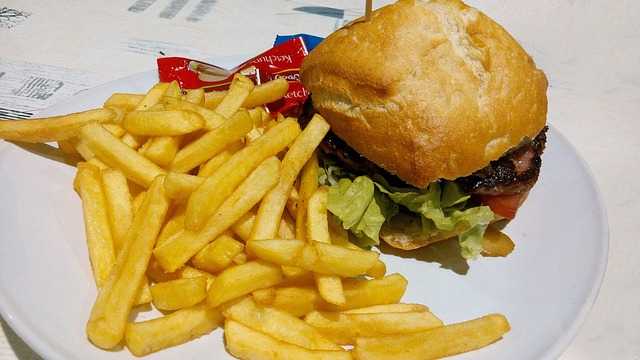1. Increase physical activity

Increasing physical activity is one of the most effective ways to lose weight gained from medications. Engaging in regular exercises, such as cardio and strength training, can help you burn calories and boost your weight loss efforts. Some additional examples of cardio exercises include running, cycling, swimming, walking and etc.
2. Eat a healthy diet

Maintaining good health and wellness requires a well-rounded diet. Eating a variety of nutrient-packed foods from each of the food groups – fruits, veggies, whole grains, lean proteins, and healthy fats – is important. It’s also important to limit processed foods, as well as added sugars and saturated fats. To get personal advice based on your needs and health, consult with a healthcare expert or dietitian.
3. Drink Water

Staying hydrated is key to good health and vitality! Our bodies need water for a multitude of reasons – it helps regulate our body temperature, remove waste and toxins, and carries nutrients to our cells. It is recommended to drink at least 8 glasses of water per day, but this can vary depending on your age, sex, weight, and activity level. Switching out sugary drinks for water can also help with weight loss and maintaining a healthy weight. Remember, thirst isn’t always a reliable indicator of hydration, so make sure to stay on top of your water intake..
4. Keep a food diary

Keeping a food diary can be a helpful tool for tracking your food intake and recognizing patterns in your eating habits. This can be done by writing down everything you eat and drink throughout the day, along with the time and portion size. Additionally, it can be useful to note any sentiments or feelings that may have affected your food decisions. By keeping a food diary, you can become more mindful of your eating habits and make modifications to better your diet and reach your health objectives. It can also be employed as a tool for monitoring progress and progress tracking. Some apps and websites also offer this feature, which can make it more interesting to record and assess your food intake.
5. Manage stress

Stress can have serious repercussions on your overall health and well-being from anxiety and depression to heart disease and sleep disorders. But the good news is, it’s possible to manage it! To help you stress less and feel better, here are some strategies you can use:
• Practice relaxation ways similar as deep breathing, contemplation, and yoga
• Get regular exercise
• Spend time in nature
• Connect with friends and family
• Pursue hobbies and interests
• Get enough sleep
• Set realistic goals and prioritize tasks
• Use time management strategies
• Seek professional help if needed
Remember, it’s ok if some strategies don’t work for you. Each of us is different, so it’s important to keep experimenting until you find the best stress management techniques for you. And remember, managing stress is a continuous process that requires commitment and effort.
.
6. Consider a weight loss program

Consideration of a weight loss program may be beneficial for those who are looking to lose weight and improve their overall health and well-being. There are many different weight loss programs available, including those that focus on diet and exercise, as well as those that involve medication or surgery.
It’s important to find a weight loss program that is safe, effective, and sustainable for you. Some programs may be more appropriate for certain individuals based on their unique health conditions, preferences, and lifestyle.
Before starting a weight loss program, it’s recommended to talk to your healthcare provider, a registered dietitian, or a certified fitness professional. They can help you assess your current health status, set realistic goals, and develop a personalized plan that is safe and effective for you.
It’s also worth noting that weight loss should not be the only goal, it’s also important to focus on overall health and well-being. Crash dieting and extreme weight loss methods can be harmful to the body and lead to rebound weight gain.
7. Eat slowly

Eating slowly can be beneficial for weight loss and well-being. Taking some extra time to eat allows your body to recognize when it’s full and satisfied, which can help stop overeating. Eating quickly can also lead to gulping air, which can cause bloating and uneasiness.
Eating slowly can also improve the pleasure of food and the overall dining experience. Eating with attention and appreciating each bite can help you appreciate the flavors and textures of your food.
Here are some creative ways to eat more slowly:
Masticate your food thoroughly
Set your utensils aside between bites
Avoid diversions while eating (TV, phone, etc.)
Use smaller plates and serve smaller amounts
Engage in conversation and socialize during meals
Sip water or other non-caloric drinks between bites
Hear to your body and stop eating when you feel full. Eating slowly can be especially beneficial for weight loss because it helps you to eat less and feel more pleased with smaller amounts
8. Cut back on sugar

Cutting back on sugar is important for overall health and well-being. Consuming too much-added sugar can lead to weight gain, high blood pressure, type 2 diabetes, and an increased risk of heart disease.
The American Heart Association recommends that women consume no further than 6 tablespoons of added sugar per day, and men consume no further than 9 tablespoons.
One way to cut back on sugar is to be mindful of the sugar content of the foods and drinks you consume. Look for added sugars in the ingredient list and be aware of the different names for sugar, such as glucose, fructose, and high fructose corn syrup.
Another way is to choose whole foods over processed foods, as these often have less added sugar. Also, consider preparing your own meals and snacks at home, so you can control the amount of sugar you add.
You can also try to replace sugary drinks with water, tea, or coffee. And also try natural sweeteners like honey, maple syrup, and dates instead of white sugar. It’s worth noting that cutting back on sugar doesn’t mean cutting it out completely, having a balanced diet is important and it’s ok to treat yourself with small amount of sugar in moderation
9. Avoid late night food and snacks

Avoiding late-night snacking can be beneficial for weight loss and overall health. Eating late at night can disrupt your body’s natural sleep-wake cycle and make it more difficult to fall asleep. Additionally, late-night snacking can lead to overeating, which can contribute to weight gain.
To avoid late-night snacking, try to finish your last meal of the day at least 2-3 hours before you go to bed. This will allow your body time to digest your food before you go to sleep.
You can also try to engage in activities that promote relaxation, such as reading, yoga, or taking a warm bath before bed. This can help to distract you from food cravings and make it easier to fall asleep.
Another strategy is to keep healthy snacks on hand, such as fresh fruits, vegetables, or nuts. These can be satisfying and can help to curb your appetite without providing too many calories.
It’s also important to address underlying issues that may be causing you to snack late at night, such as emotional eating or boredom. Identifying and addressing the root cause can help to reduce the urge to snack late at night.
10. Take a multi-vitamin

Getting enough of certain vitamins and minerals is important for overall health and well-being.
1. Vitamin D can help improve bone health and boost your immune system.
2. Iron can help improve your energy levels and boost your immune system.
3. Calcium can help improve bone health and reduce the risk of osteoporosis.
4. Zinc can help improve your immune system and boost your metabolism.
5. Vitamin C can help improve your immune system and boost your metabolism.
6. Vitamin B12 can help improve your energy levels and boost your metabolism
A well-balanced diet, rich in a variety of fruits, vegetables, whole grains, lean proteins, and healthy fats, is the best way to ensure that you get enough of these essential vitamins and minerals.
